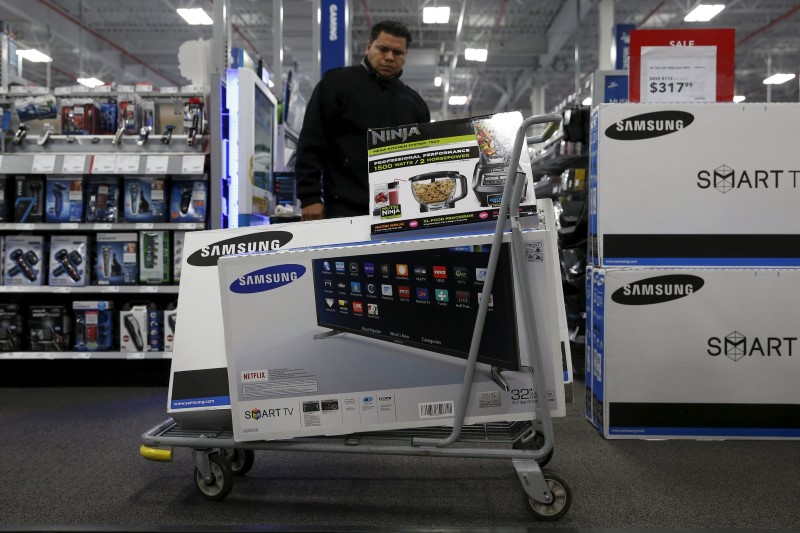Powell’s speech, Nvidia’s chips, Meta deal - what’s moving markets
On Thursday, Barclays (LON:BARC) reiterated its Equalweight rating on Best Buy shares (NYSE:BBY) with a steady price target of $89.00, closely aligned with InvestingPro’s Fair Value assessment. Currently trading at $71.52 with a P/E ratio of 16.68x, the stock appears undervalued according to multiple metrics. The company’s first-quarter performance presented a mixed picture, with revenue declining 4.43% but showing improvement in earnings per share (EPS). Analysts at Barclays highlighted Best Buy’s current challenge of instilling confidence in its ability to manage tariffs and advance strategic initiatives, such as its Marketplace platform.
Best Buy’s Q1 sales did not meet expectations, falling short even though there were indications of consumer purchases being brought forward and some projections of positive comparable store sales. The company’s sales trends appear inconsistent, influenced by specific product categories, as well as broader economic and housing market factors. The guidance for Q2 sales aligns more closely with market expectations, forecasting a slight decrease. Despite these challenges, InvestingPro data shows the company maintains a strong 5.31% dividend yield and has increased dividends for seven consecutive years, demonstrating financial resilience. Get access to 10+ additional exclusive ProTips and comprehensive analysis with an InvestingPro subscription.
Despite the underwhelming sales figures, Best Buy managed to report a stronger Q1 EPS, which was well-received in contrast to prior concerns. Seven analysts have recently revised their earnings estimates upward for the upcoming period, suggesting growing confidence in the company’s outlook. The company has also revised its full-year EPS guidance, which is expected to be met with approval, provided that any changes in tariffs or consumer behavior remain consistent with current patterns. Barclays notes that while the revised EPS figures are based on the midpoint of these new estimates, Best Buy’s stock is trading at approximately 11 times these numbers, suggesting that the market may be factoring in more tariff-related risks compared to other companies in the sector.
In other recent news, Best Buy has been at the center of several developments impacting its financial and operational landscape. The company has established a new $1.25 billion senior unsecured revolving credit facility, replacing a similar credit line set to expire in 2028. This new arrangement, extending until April 2030, maintains similar terms and is part of Best Buy’s broader financial management strategy. Additionally, Best Buy has been affected by recent tariff exemptions on consumer electronics, including smartphones and computers, which were announced by U.S. Customs and Border Protection. These exemptions are anticipated to alleviate some cost pressures for Best Buy, as the company heavily relies on Chinese imports.
Analysts at Benchmark have maintained their Buy rating and $110 price target for Best Buy, citing the positive impact of the tariff exemptions on the retailer’s cost structure and margins. Meanwhile, DA Davidson has adjusted its price target for Best Buy to $95 from $110, although it continues to uphold a Buy rating. The firm noted that despite recent market challenges, Best Buy’s core business remains solid, with improvements in its computer and television product cycles. However, KeyBanc Capital Markets has highlighted the challenges Best Buy faces due to new tariffs, estimating a weighted tariff rate of approximately 33% for the company.
Investors are closely monitoring how Best Buy navigates these developments, particularly the tariff changes and their impact on the company’s financial results. The company’s ability to leverage the temporary tariff relief and manage its credit facility effectively will be crucial in the coming quarters.
This article was generated with the support of AI and reviewed by an editor. For more information see our T&C.
